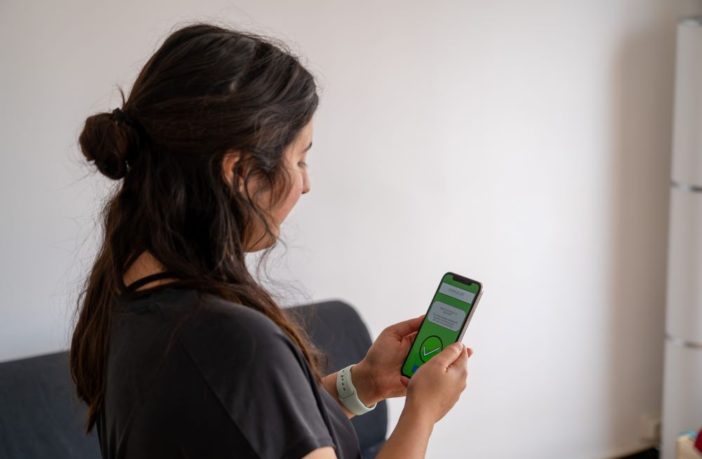Tech experts from The Open University (OU) have developed the world’s first digital application to certify COVID-19 immunity test results.
Researchers from the OU’s Knowledge Media Institute have created a prototype mobile phone app that enables instant verification of tamper-proof coronavirus test results and vaccination certificates.
Immunity passports backed by government
In recent weeks, the government has been discussing plans to help the British public get back to work, particularly frontline staff who have already recovered from the virus, and the use of immunity passports to verify fitness to work.
Although immunity tests are a work in progress, immunity passports have been hailed as a step in the right direction in getting people back to a sense of normalcy.
Simple and straightforward, the OU’s prototype can be used by frontline staff and the public alike to prove they have antibodies and therefore immunity to coronavirus, all at the touch of a button.
Using the app, pharmacists and GPs can carry out tests in their practice and issue digital certificates through the app which can then be used by the patient (end-user) to prove immunity.
Personal information is only stored at the patient’s discretion and allows them to selectively present specific test results with no other personal information revealed.

Professor John Domingue, Director of the OU’s Knowledge Media Institute
Speaking on the new, mobile phone app, Professor John Domingue, Director of the OU’s Knowledge Media Institute, said:
“Like many researchers, the OU’s blockchain team have been highly motivated to contribute to resolving this global pandemic. We’ve been looking at how our existing technology could be repurposed to aid immunity certification.
“Our app, building on several years of research into decentralised certification, is readily scalable, applicable generically, and ‘waiting in the wings’ for immunity testing to be in full effect.”
Secure and tamper-proof
Developed from blockchain technology, the app provides verification and privacy whilst ensuring that end-users remain in complete control of their data.
The digital certificate is secure and tamper-proof by design with a number of measures included in the verification process. For example, the end-user will have to provide proof of ID before testing and a permanent digital fingerprint of the double-signed certificate is placed on the blockchain, which is used by a verifier, such as an employer, to check authenticity.
The mobile app, currently undergoing testing, will be available and can be applied to other COVID-19 certification scenarios, for example, the verification for key workers to travel, for people who have recently tested clear of the virus and proof of vaccinations if/when they appear.
For more on the COVID-19 digital immunity certification read the submitted OU paper at blockchain.open.ac.uk/#covid-19



